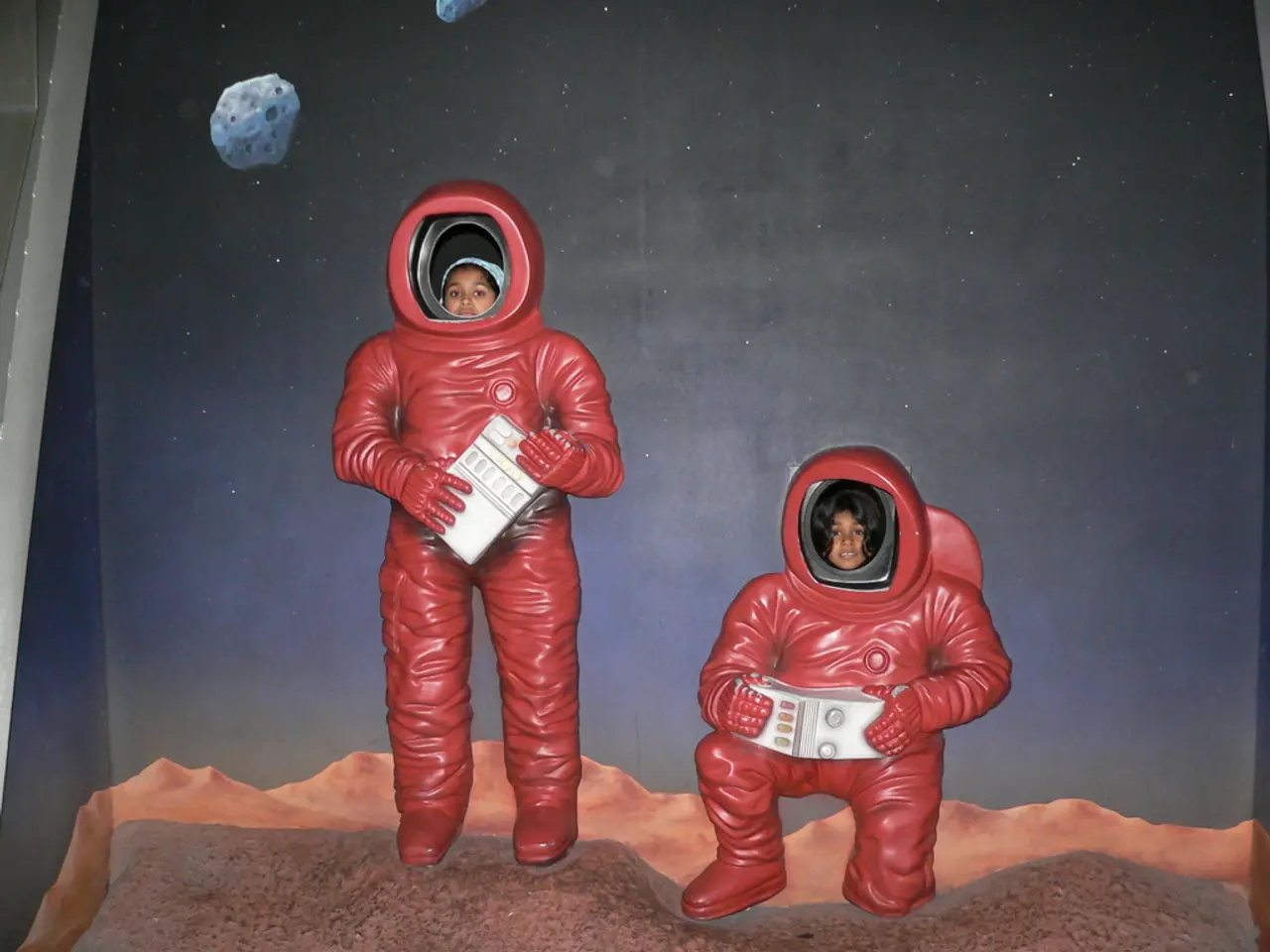Life aboard the International Space Station vividly portrayed in 'Orbital', focusing on the personal experiences of astronauts
================================================================================
The International Space Station (ISS) offers a unique living experience for astronauts, with its floating environment and stunning views of Earth. One such inhabitant of the ISS, Dr. Cady Coleman, also happens to be an author, having penned a book titled "Sharing Space: An Astronaut's Guide to Mission, Wonder, and Making Change."
Another author who has been inspired by the ISS is Samantha Harvey. Her novel, "Orbital," won the Booker Prize late last year and delves into the inner lives of astronauts aboard the ISS. Harvey found her inspiration during lockdown, perhaps finding a strange parallel between the isolation of space and that of being confined at home.
The physical environment of the ISS, with its high orbital speed and distance from Earth’s gravity, results in a phenomenon known as time dilation. This causes astronauts’ clocks and biological aging to run marginally slower compared to people on Earth—roughly a few milliseconds difference over six months. However, this effect is extremely subtle and imperceptible in daily experience.
From a psychological and emotional perspective, the ISS's unique environment and social context can significantly alter the perception of time. Astronauts on the ISS orbit Earth about every 90 minutes, cycling between day and night rapidly, which disrupts natural circadian rhythms and can distort the sense of time passing.
Astronauts report experiencing temporal illusions, where time may feel compressed or expanded depending on workload, isolation, and emotional states. Dr. Coleman has spoken of how being physically separated from loved ones introduces a profound emotional distance despite constant communication. The delay in communications—even if only seconds—combined with the inability to share physical presence, significantly shapes their sense of connection and time spent apart.
The vastness of space and the constant view of Earth can invoke a sense of awe, which psychological research suggests can slow down the subjective perception of time, making moments feel more profound and expansive. This duality—an intense focus on mission tasks that can make time fly by contrasted with moments of longing or reflection where time stretches—is a common experience among astronauts.
In conclusion, while astronauts physically age ever so slightly slower due to relativistic effects, the subjective perception of time on the ISS is heavily influenced by altered environmental cues, psychological stressors, and emotional factors. This impacts how they experience time itself and deepens or complicates their relationships with loved ones on Earth as they navigate separation, communication delays, and emotional distance.
For those interested in learning more about science and space, The Week offers a Science Newsletter that delivers essential news and additional stories right to your inbox.
[1] Discover Magazine, "Time Dilation and Astronaut Experience" [2] Wikipedia, "Time Dilation" [3] Psychological studies on time perception and awe [4] Insights drawn from "Orbital" and astronaut Dr. Cady Coleman’s testimonials.
Science enthusiasts can delve deeper into the fascinating subject of time perception in space by subscribing to The Week's Science Newsletter, which brings essential news and captivating stories straight to your inbox. Additionally, the exploration of time in space-and-astronomy has found its way into entertainment, as evidenced in Samantha Harvey's Booker Prize-winning novel "Orbital," and in the personal accounts of astronauts like Dr. Cady Coleman.




